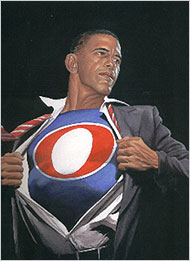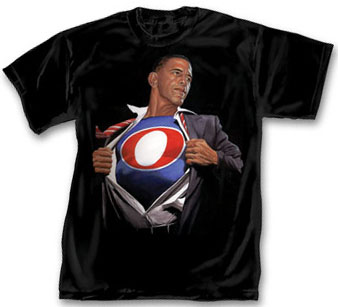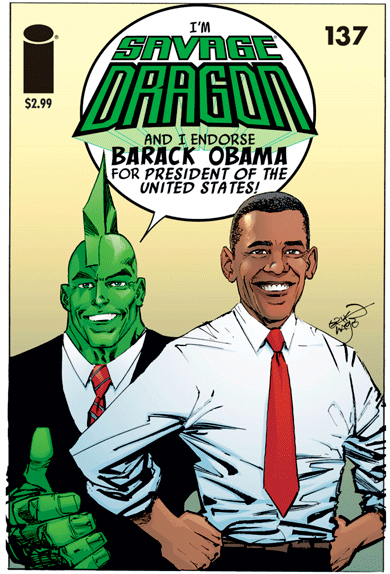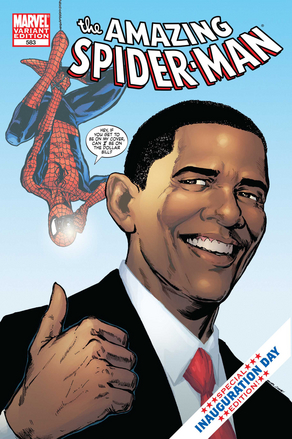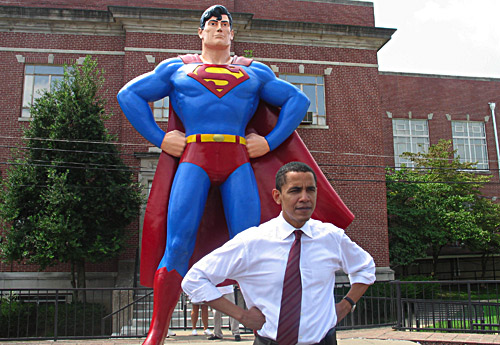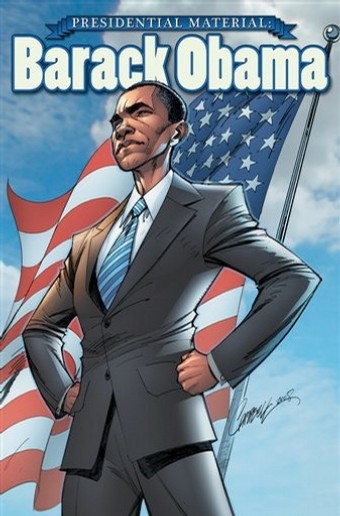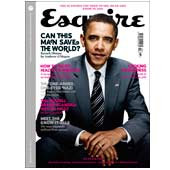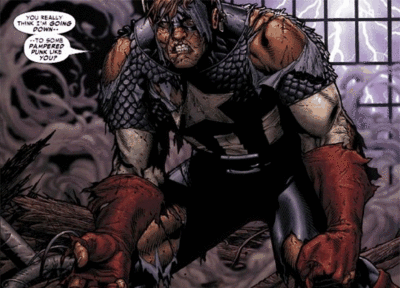Archive for the ‘Comicbooks’ Category
“Superhero Providence” (or the Mutant Progeny of Fredric Wertham…)
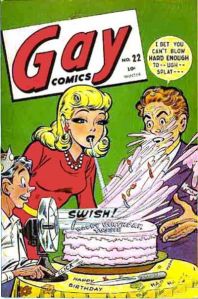
prov·i·dence n.
1. Care or preparation in advance; foresight.2. Prudent management; economy.3. The care, guardianship, and control exercised by a deity; divine direction: “Some sought the key to history in the working of divine providence” William Ebenstein.4. Providence God.
I recently found myself involved in a debate that emerged from what has been a historical lack of a debate, rather than as the continuation of a debate that has a visible, nameable forebear. This debate took place upon the message boards of Robot 6, a comicbook inspired ‘blog, but did not originate there. This debate began with participants eagerly diving in, cutlasses unsheathed ready to assault both the originator of the debate, and those who found themselves taking the opposed position witihn this debate.
The situation in question was the mission statement put forth by Bill Willingham, a respected and coherent author within the medium of the comicbook whose work includes but is not limited to the critically praised Fables, in which he referred to both a current trend towards “Superhero Decadence” (a term he borrowed), and the need for a resuscitation of values that have become somehow lost in this context.
The “Superhero Decadence” argument is the premise that within the superhero narrative genre of comicbook fiction there has been a move away from the easily defined moral presuppositions of what some would define as the origins of the genre, to a murkier, more ambivalent moral stance, both in terms of tonal shifts and the explicit actions, ideas, thoughts, and beliefs as recognised by the superheroes as a part of their own identities within the confines of the fictional depictions.
In comics today, superheroes seem to be less certain of the nature of superheroics than we as an audience are…
It is here that I propose my own intervention, and whilst not definitive, I like to think I am providing a healthy contribution to this nascent discourse.
I have named my contribution as “Superhero Providence” as a counter statement to the adherents to the notion of “Superhero Decadence”. I do so to indicate my own stance vis-a-vis this notion, not as a definition of the alternative, if any, I will now try to provide.
The new spirit or ethos of the superhero narrative is viewed by some as an embodiment of the failings of not only the moral character of the genre, but also held as an emblem for the financial failings of the medium itself. Dirk Deppey, the comicbook journalist makes this association in an article on the Journalista site:
“Why this situation exists has to do with a series of catastrophic business decisions made in the 1990s, which effectively eliminated the under-18 set as customers at your local funnybook store. Left with no one but the hardcore enthusiasts, Marvel and DC promptly began catering to them instead, and the result was Superhero Decadence. Because this remaining audience is so hardcore, they’re almost guaranteed to reject comics that don’t rise (or is that drop?) to their expectations. This in turn has stuffed your local comics shop full of books that force parents to pre-screen virtually everything that their kids might like, and unless you’re fortunate enough to be dealing with a retailer who watches out for this sort of thing and advise their customers accordingly, the result is Too Much Hassle for busy moms and dads — better just to avoid comics shops entirely, leaving them to their rapidly aging customer bases and the forces of inertia and attrition.”
Deppey originates the condition in a kind of pathological insistence on the behalf of the audience, relating the current decadence to the a priori impossibility of using a form of children’s fiction into an adult genre:
“In general, I agree with Carlson’s argument, but I would say that the current kerfuffle is little more than a reflection of a larger problem, which isn’t sexism so much as the continuing effort to wedge an adult sensibility into a genre created for children. I’ve taken to calling this phenomenon “superhero decadence,” and it occurs to me that I should define my terms a bit. By “decadence” I don’t mean sexual deviance, but rather “jaded but unwilling to move on, with one’s tastes growing more ornate and polluted in the process.” Readers of modern superhero comics seem to be chasing a cherished moment from childhood without quite understanding that they’re no longer the people capable of enjoying that moment with the same wide-eyed wonder; possessing a more adult outlook, they thus insist on reading modern variants of the superhero comics that they loved as teenagers, but with a point of view more appropriate to The Sopranos than Teen Titans wedged in there as well. The results read like an adult crime drama featuring all the excess sex, violence and a zombie-like attempt at the sophistication of an HBO television series but with a cast composed entirely of professional wrestlers.”
It is here that the fan-base are also seen to be participating in the collective disenfranchisement of the superhero from his moral belongings. We are therefore all implicated in the unfolding project of this age of decadence. All of us who wish to enter this Habitus of the Child seem to be too tall to enter through the door, so we must shatter it’s frame.
Bill Willingham taking up this righteous baton, and making of it a one man marathon, has decided he must combat this decadence from within. In an honourable show of self-awareness, he delineates and structures his provocation around his own implication in fermenting the intoxicant upon which the genre has now become inebriated, and even went so far as acknowledge his own past as a peddler of the brew:
“Those are but two examples of the slow but steady degradation of the American superhero over the years. The ’super’ is still there, more so than ever, but there seems to be a slow leak in the ‘hero’ part. There’s even a term for it, coined by (I’m not sure who, but it might have been one of two respected comics journalists) either Dirk Deppey or Tom Spurgeon. Folks, we’re smack dab in the midst of the Age of Superhero Decadence. Old fashioned ideals of courage and patriotism, backed by a deep virtue and unshakable code, seem to be… well, old fashioned.
Full disclosure time. I’m at least partially to blame for this steady chipping away of the goodness of our comic book heroes. In my very first comic series Elementals, first published close to thirty years ago, I was eager to update old superhero tropes, making my characters more real, edgier, darker — less heroic and a good deal more vulgar than the (then) current standard. Elementals was one of the first of what was later dubbed the ‘grim and gritty’ movement in comic books. And to complicate my confession, I’m still proud of much of that early work. At least my crass and corrupted Elemental heroes still fought, albeit imperfectly, for the clear good, against the clear evil.
Willingham ends his “mission statement” with a promise, a promise to rectify this, in as much as success is a possibility in any one-man crusade. He clarifies he is not of an expectation that others will follow suit, but he still maintains a commitment to this admonishment. What has been the most contentious idea in Willingham’s essay is his insistence that
“…the superhero genre should be different, better, with higher standards, loftier ideals and a more virtuous — more American — point of view.”
So here it seems we are caught in a declining value system, with the supposed founding values of the genre threatened, with the certainty and native morality of the superhero being eroded by the obscenely mature expectations of a shrinking, albeit devoted core audience. This diagnosis seems to necessitate the cure of a direct injection of Willingham’s own brand of special considerations, American considerations.
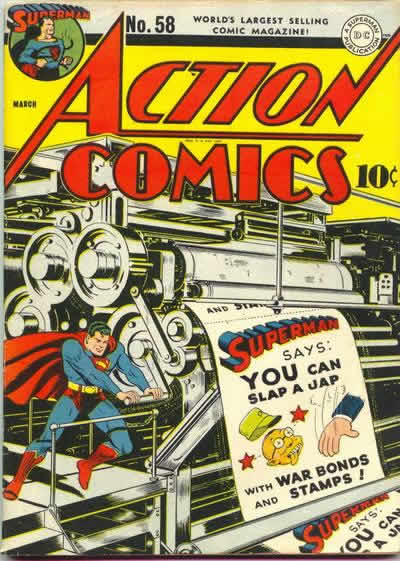
So, why is this important enough an issue to warrant a response of the kind I am indulging in. Well, this is not just an issue of morality, which is something I will get to soon enough, but is also an issue of legacy and heritage.
The argument that we live in a decedent age, both of our consumption patterns and the moral imperatives thereof, is an argument that has been leveled at the medium before… but before it was not used by creators, but opponents of the medium. We were all suspected of seducing the innocent into the reckless abandonment of values which resulted in youth crime, and childhood delinquency. The argument both Willingham and Deppey are participating is not a new criticism of the medium. It was originally a proposal put forward by a man whose mission, and example, led to the systematic destruction of the industry…
His name was Dr. Fredric Wertham…
Wertham is a name that still retains a lot of cache, but no longer amongst those outside of comicbook audiences. He led the successful campaign to have a system of censorship imposed upon the medium, having appeared before the Senate Subcommittee on Juvenile Delinquency. The story goes that the moral panic that ensued due to Wertham’s continual assertion of the link between juvenile delinquency and comicbook consumption caused the public burning of comicbooks in a fashion that seem at odds with the idea of free expression.
The indication that comicbooks have become inconsistent with the desired values of their target audience is often, as in both the cases of Wertham and his mutant progeny, made by those who are defined, by even themselves it seems, as not belonging to the target audience of the medium. It seems that the medium is viewed by many along pedagogical lines, as a means for the explanation and proliferation of the kinds of values that it audience needs to know.
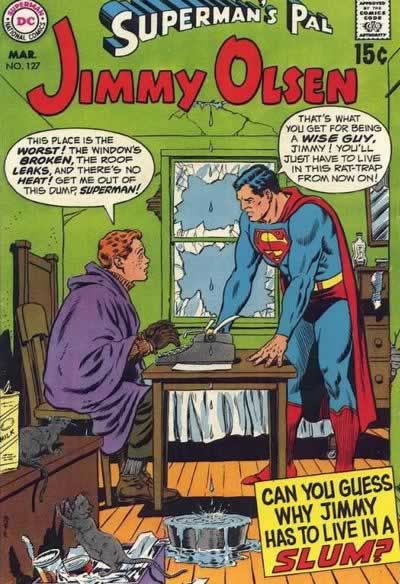
The most basic assumption of this model of thought is that the values of yesterday are show how given a privilege over those of today. The imagined moral qualities of something that was once is projected as the correct solution to the problems of today, be they of directly moral relevance, or in other cases, social or economic character.
The reason for highlighting the economic over others at this point is that we are reaching a moment in the development of the industry where we are accessing the kind of levels of (cultural) capital that the industry hasn’t seen for decades, if ever. It seems counterintuitive to suggest that there is any kind of lack in the superhero genre today, given that we are now building our own film production studios, and properties that began in our terrain are scoring nearly a billion USD in the global market.
The reality is this is less of a pedagogical manoeuvre and much more of a response to the nature of the industry, and who ultimately has the final say over the product.
Is it to be the consumers…? Is it to be the owners of the business…? Or is it to be the creators who hold the ultimate control over the qualities and characteristics of the medium as we see it…?
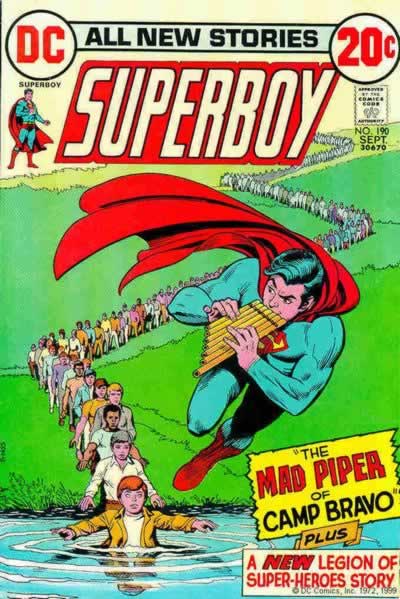
There is not any disagreement here that the changes in market can and, in my humble opinion, will have an immediate impact upon the mechanisms and considerations that feed into the production of the comicbook… but is a moral perspective the correct approach to take when assembling an alternative system for the valuation of the products emerging from the industry…?
I do not believe this to be most effective way to challenge the procedures that are being brought in being by the challenges and opportunities afforded to creators in the current context and climate. The reason for this touches upon the meaning of morality itself. It also impacts upon who can claim moral ownership over the substance of the superhero narrative.
Firstly, I think I should be clear about what/why I have a dislike of Willingham’s association of certain moral principles with an idea he has about America.
The issue is in the contemporary context, and I mean this in a loose sense, perhaps the last thirty years or so, is that the notion of America, or America as an ideal, has been used as a rallying cry for actions, both national and international, that have resulted in massive amounts of barbarism.
From Vietnam to Iraq, as the easiest examples to hand, but also including Nicaragua and the Balkans, the idea that America automatically represents the notions of “Liberté! Egalité! Fraternité!” has been used as the implicit assumption, and even explicit rhetoric, for some of the most heinous acts of military barbarity that the world has ever seen.
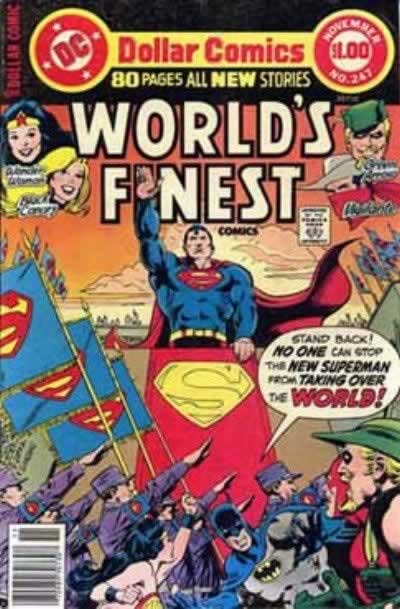
For some of those outside of the US, which includes myself, the problem is that these ideals can be used as a Trojan horse, presenting an action as seemingly motivated by altruistic, or commonly held sacred values, when they are in fact motivated by much baser, profane desires for power, wealth, or bravado.
I’m not suggesting that the ideals proposed as being American aren’t of value, but they remain, and in my opinion are in some sense ghettoized there, as nothing more than ideals. Good notions, that people should live up to, but never really fulfill, or enact.
To then characterise these concepts as the mechanism for the valuation of fictional stories, or as a moral motivation for a polemic, just continues the moral posturing, and gesturing that is always done in the context of conquest and bloodshed. It is not so much that Willingham or others are consciously or deliberately advocating a justification for the actions which some may find questionable, that have been perpetrated by the US in the last few decades (and before for that matter), it is that his rhetoric just sounds like his is singing from the same score sheet.
For me, as a non-American (in love with American culture and people, sometimes literally!), I find the way he deploys the concept of morality troubling not so much in that I do not share those ideals, but that I do not know how far Bill actually BELIEVES in THESE ideals.
Arguing for a particular style of morality is meaningless if the means by which this morality is made to become normative is not made clear. This means, for me at least that these morals may be universal, but that does not make the means for their ascension so.
In the context of the superhero narrative, the idea that our heroes should conform to a set of ideals that are, as of yet, historically unfulfilled, seems just, well, fundamentalist. I’m not suggesting that superheroes shouldn’t be heroes, or moral, but why frame these morals in a particular national rhetoric? It seems excessive, provocative, and willfully divisive to do so… especially given the complex and nuanced debate that permeates the globe vis-a-vis these ideals. Again, I’m not arguing against Willingham’s ideals per se, but more with the rhetoric he deploys to express these ideals, as it is the same rhetoric used by those who then demonstrate that their commitment to these ideals often involves imposing a certain interpretation of them on others from down the barrel of a gun.
The style of superhero that involves a morally ambiguous and morally uncertain depiction of their activities is for me, a much HIGHER form of moral contemplation and meditation than those which are framed within the confines of a particular national rhetoric, as they require the deliberate and difficult commitment to self-analysis, introspection and willingness to change approach that comes with a philosophical rather than fundamental adherence to a certain interpretation of morality.
It is much harder to maintain a commitment to the spirit of a morality, than it is to follow a prescriptive set of moral rhetorics that pre-define the terrain of action. To be moral, without committing to a defined set of pre-suppositions is much harder, and requires much deeper understanding of the meanings of a morality, than does adhering to a doctrine or inherited set of social prejudices.
It was Descartes who used the image of the blind-man walking with a stick as an analogy for man’s understanding of the universe for a good reason. To argue that we inherently possess a vantage point from which to assess the entire terrain of values, morals, or ethics because of the contingent factors of place, or historical epoch of birth, is to my mind, an act of egoistic chauvinism. We can never really know that we are correct without first making the mistakes involved in bumping into things in the dark. As such, for me, a true morality understands that mistakes, and uncertainty are not separate to knowledge or correctness, but are part of a continuum.
A superhero that grasps the journey, or path to moral enlightenment understands that morality is not prescriptive, but learned, and struggled with. For example, would Spider-Man have learned the lesson of power and responsibility if he HAD NOT been indirectly to blame for his uncle’s death…? Even people who are Evil, (and even as an ardent Leftist, I use and believe in the presence of Evil), are capable of learning the error of their ways…? Is not the truth of Wolverine’s story that of a man atoning for his past…? A man who recognises his own potential for evil, and so strives to fight against it at all times, questing to rather fulfill his equally present potential for good?
These heroes cannot believe in a simple, obvious morality, because their morality is based upon the changing of their perspectives upon themselves. It is the moment of doubt about their place in the world and their assumed justifications for it, inherent to the moment at which these heroes turned TOWARDS a morality, that actually founds their morality. So stating that one can eliminate the doubt from their moral map of the world would strip them totally of moral value, from their subjective perspective and ours.
Superheroes that KNOW they are right , are inherently NOT moral, because they are not motivated by a commitment to the real implications of their actions, but the commitment to a set of abstract written rules. As such it is a dogma, not a true ethical, or moral stance. Was that not part of the message of Christ that he brought for the Jews…? That their commitment to the written laws of the Sabbath actually placed a greater emphasis upon the laws of man, than a commitment to a real understanding and acceptance of the necessities of True Faith…? I’m not a Biblical Scholar by any means, but this was always a story and interpretation that I liked…
The presence of doubt at the heart of a morality is not the annihilation, or abdication of a commitment to a moral perspective, but the necessary founding moment of true moral commitment. It requires learning, and commitment to knowing that one does not automatically occupy a morally pure position, but that one can only aspire to a higher morality, and that this aspiration will never manifest itself in a uniform arithmetic of action.
With morality uncertain by design, the imposition of a certain kind moral imperative upon the medium is nothing less than dogmatic, and does not address the intensely transformative power of the global market…
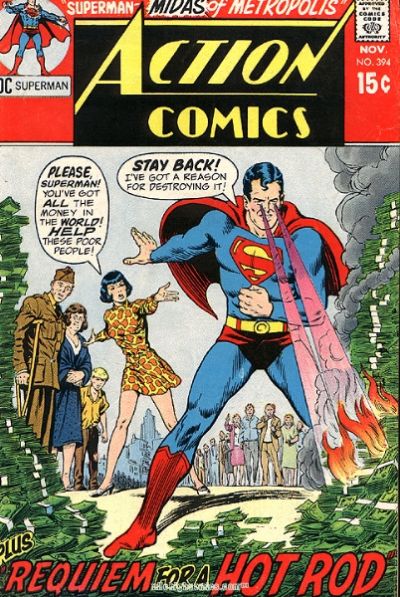
What solutions do I see…? If any…?
What I think is required is not more content control, but less. Not to adopt a standard pedagogical model of audience receivership, or a direct hostility to market demands, but to work harder on building surer and more open routes for new creative talents, ideas and involvement.
Whilst other industries are using the emergence of social networking facilities and the option of user generated content the internet facilitates we still retain the kind of auteur model that prevents us from smoothing the bumps between audience consumption, and creator production.
We are not using this moment to think about how we secure new talent, a vital component of what ensures the longeivity of other creative industries. When local, working class schools and colleges offer the educational option of partaking in qualifications geared directly towards involvement in the industry, why do we lag so far behind…?
What we need is not to lecture the audience, or assume we know what is best for them, especially in the context of the immutabilty of doubt at the core of all forms of human knowledge, we need to create clearer, fairer, and far more responsive mechanisms for new talent to come through and tell us what they want to read.
Without encouraging a greater accessibility to the production of our medium, or really taking seriously how we futureproof our pool of creative bodies, we will have nothing. The smaller our collective pool of creators becomes, the more we rarify our product, the more chances are we will lose relevance, cultural capital, and in the end the kind of financial clout that allows for us to make decisions counter to the indications of any kind market dynamic, be those of decadence or austerity.
In many ways this is our need for providence. Our medium must move to make the kind of long-term decisions that are based on making what we do as participatory as possible, as exciting and open a space as we can… so that we will no longer need to shatter door frames or run one-man marathons.
Love and comics,
Luke
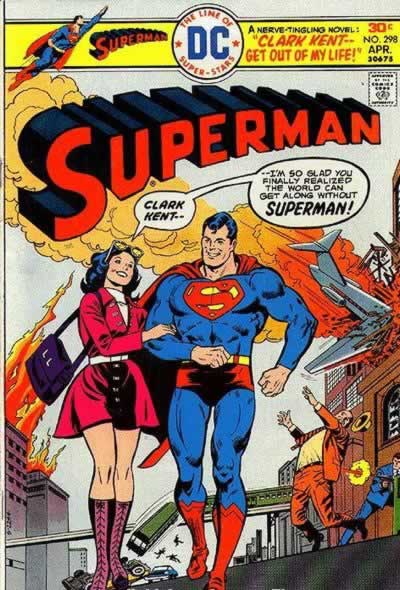
Refs:
Deppey:
– http://tcj.com/journalista/?p=354
– http://tcj.com/journalista/?p=753
Willingham:
Robot 6:
– http://robot6.comicbookresources.com/2009/01/willingham-no-more-superhero-decadence-for-me/
